A Ripple in the Data Flow
Virtual Exhibition, Brooklyn New York, USACurator: Xinchen Du
Artists: Xingyang Cai, Gregory Edwards, Huang Guaier + Wang Runzhong, Xiang Geng, Tao Hui, Marc Lee, Molly Soda, Ziyang wu, Esther Xu, Payne Zhu, and more
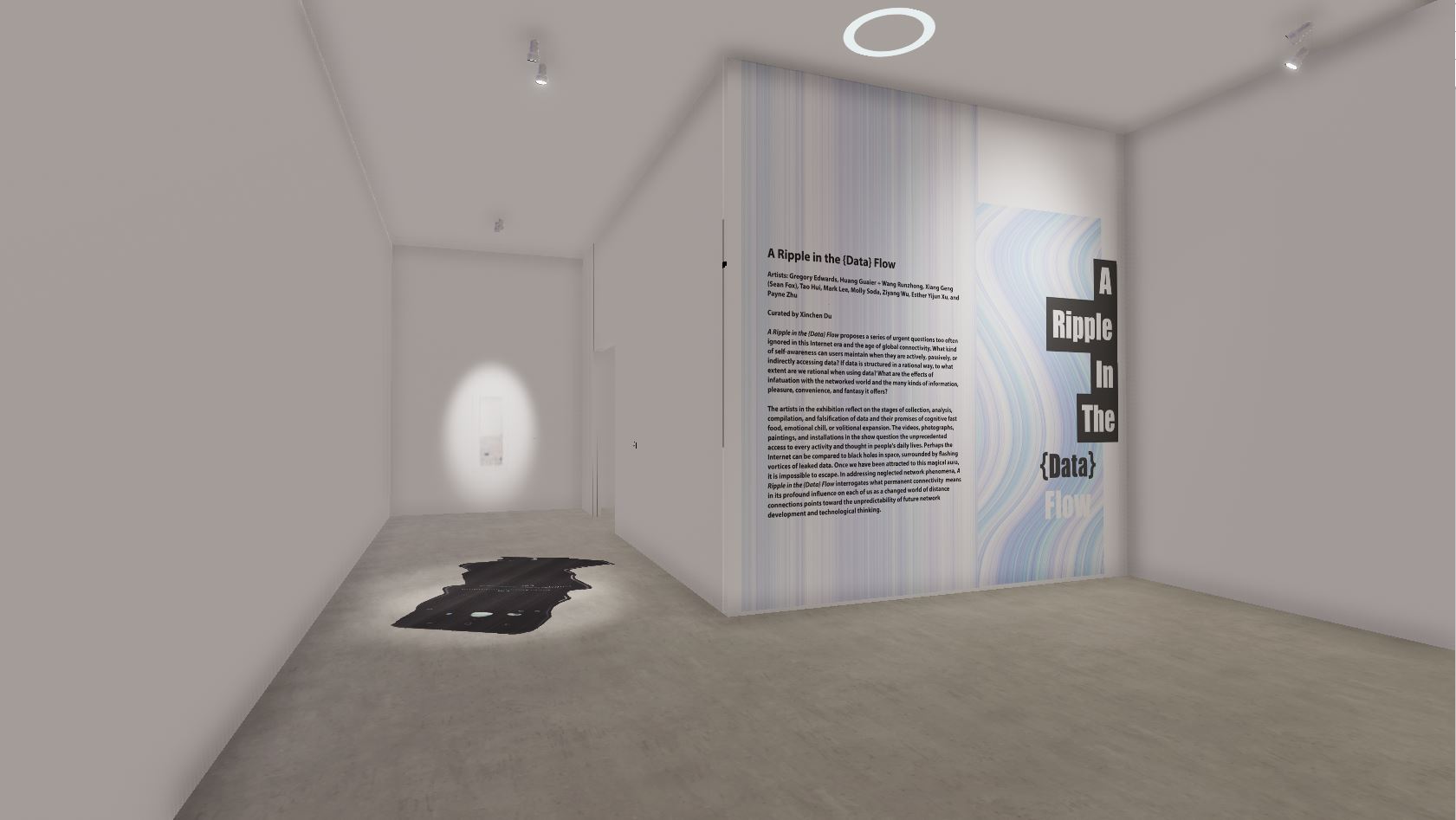
A Ripple in the Data Flow, online virtual exhibition, screenshot
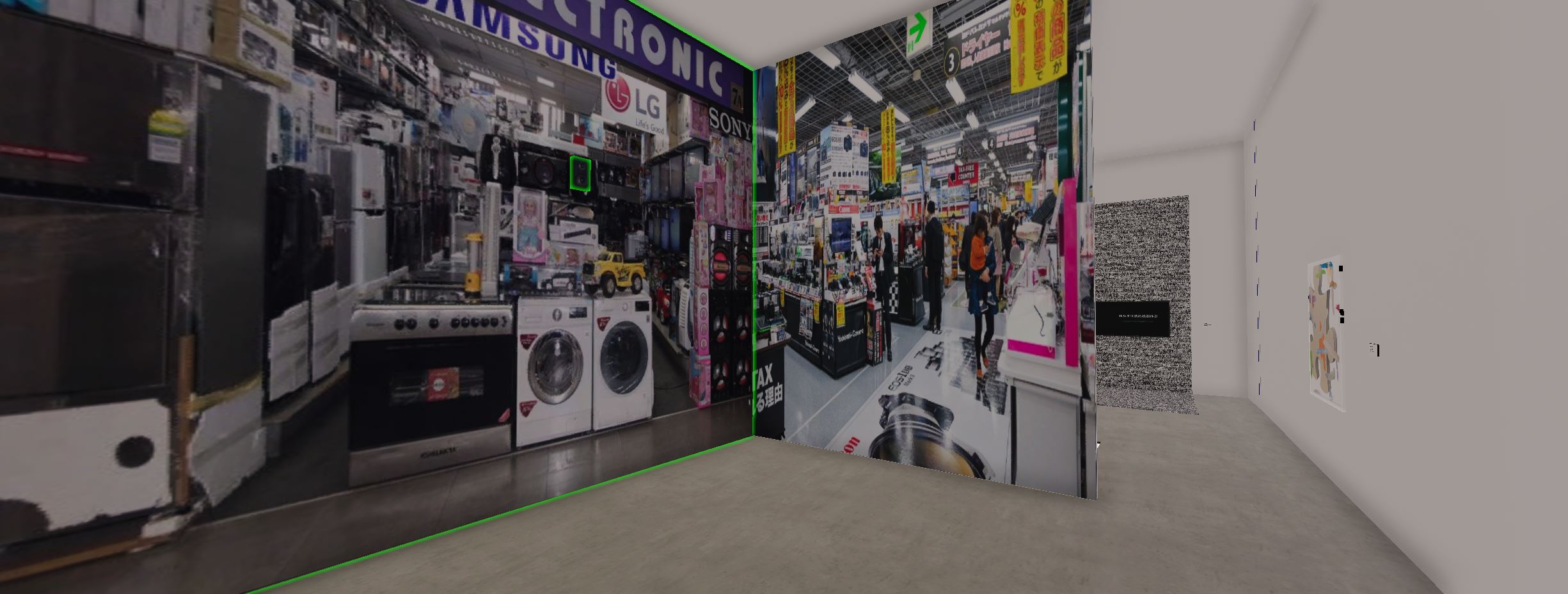
A Ripple in the Data Flow, online virtual exhibition, screenshot
This virtual exhibition was made possible with support from Steven Henry Madoff, Brian Kuan Wood, faculty at MA Curatorial Practice.
Special thanks to my mentors Natasha Ginwala and David Frankel for their guidance, the artists Gregory Edwards, Huang Guaier + Wang Runzhong, Xiang Geng (Sean Fox), Tao Hui, Marc Soda, Molly Soda, Ziyang Wu, Esther Yijun Xu, and Payne Zhu for their works and ideas, the MACP 2020 cohort, techinical support from ORTELIA team, and finally my family for their unwavering support.
Marc Lee’s installation SECURITY FIRST (2015) reflects on the fact that surveillance is becoming an entire industry. Here, the visitors come to a corner in which the perpendicular walls are covered by photos of random electrical appliances shops as if to created the real environment. A speaker is camouflaged in the picture will play an advertising announcement for convincing people to get a surveillance camera and secure their safety:
This is important: Make a clear choice to record and be recorded. Make a change. It’s your own individual right. We are the new generation. It’s a challenge, be virtually everywhere, create communities, network and exchange. Don’t escape and don’t occupy spaces, let them be open and free. And when you publish or talk to an algorithm, never be anonymous. Crime will fall rapidly. Our life will be better. Your choice is our choice.
Lee’s impassioned propaganda is ironic, but it accurately reflects the public’s dependence on, trust in, and anxiety about surveillance today. “Security” is a keyword in the work, with its double edge of safety and authoritarian oversight. What makes people feel like they're in a safe social environment? The meaning of security is very subjective and relative. Zoom in on the concept of surveillance, which has permeated every corner of social life, whether it's the setting up of CCTV or the supervision of the Internet, people are being watched in both the real and virtual world, or in other words being controlled. This extends to the idea of cybernetics. Cybernetics is a concept that has been introduced by Norbert Wiener (Cybernetics: Or Control and Communication in the Animal and the Machine, Cambridge: The MIT Press, February 1965) to denote the study of technological mechanisms. He regards cybernetics as a science that studies the general laws of control and communication in machines and living societies, and how dynamic systems maintain a state of equilibrium or stability under changing environmental conditions. Going back to Lee's work, CCTV as the subject of his research is actually one of the representations of cybernetics in the power system. There are two levels of control. First, CCTV in public space is the government's control over ordinary people. Volkswagen is being monitored. Over time, the public has gained the security of being seen, although this is now a paradox for surveillance, because our privacy and data have been made transparent through ill-used surveillance facilities. Second, as the public grows more comfortable with the security of surveillance, we will buy our own CCTV and install it around our properties. This is a way to gain a sense of security by observing your surroundings through the subject of composition control. That is to say, surveillance cameras have long been not just a simple tool, but containing right consciousness, and with the "panoptic effect" proposed by Foucault, has a strong binding force on people's body and mind. (Farnam Street, “Michel Foucault on the Panopticon Effect” https://fs.blog/2014/07/the-panopticon-effect/)
Internet users are a significant factor in making the Internet “material.” Through the various screens, carriers, and ports of the network, we enter cyberspace and interact with other individuals or groups. As users of the network, we experience and react to information on the Internet in different ways. What is the relationship between the individual and the netizen, the individual and the group, and between groups in the real world and groups in the virtual one?
When netizens interact online, the characteristics of their self-consciousness can be classified as invisibility, collectivization, and public opinion. First, simply put, the netizen is invisible online; the Internet is anonymous. In cyberspace people can create another identity, deliberately choosing whether to project their real personality onto a virtual user-name or to use that identity to disguise themselves. The network can hide users’ individual information, including physical data, emotions, and personality. Second, collectivization: the individual user is always looking for a group to relate to and to join. The essence of using social media is to get to know others, and you share your views, interests, and activities to find out who you can connect with. Finally, public opinion: in the era of rapid information flow made possible by the Internet, the influence of public opinion is huge. When people see news events and the public’s responses to them, responses that can now be openly and universally expressed rather than filtered through media such as television and newspapers, they often either completely oppose the positions and viewpoints put forward or unconsciously identify with what are actually subjective ideas. When the majority of people are in favor of a certain point of view, the impact is enormous.
After personalized algorithms became regularly used on the Internet, these new recommendations began to provide convenience for users to adopt and consume information. However, it has also put users in a self-imposed (filtered) “bubble,” which has negative effects such as information narrowing and content quality decline.
This virtual exhibition was made possible with support from Steven Henry Madoff, Brian Kuan Wood, faculty at MA Curatorial Practice.
Special thanks to my mentors Natasha Ginwala and David Frankel for their guidance, the artists Gregory Edwards, Huang Guaier + Wang Runzhong, Xiang Geng (Sean Fox), Tao Hui, Marc Soda, Molly Soda, Ziyang Wu, Esther Yijun Xu, and Payne Zhu for their works and ideas, the MACP 2020 cohort, techinical support from ORTELIA team, and finally my family for their unwavering support.
Text by Xinchen Du
Exhibited Artwork
10.000 Moving Cities - Same but Different, VR (Virtual Reality)
Interactive Net- and Telepresence-Based Installation10.000 Moving Cities - Same but Different deals with urbanization and globalization in the digital age. The user moves through visual worlds posted publicly by others on social networks such as YouTube, Flickr or Twitter. Here these personal impressions are streamed in real time like windows to our changing world. The viewer participates in the social movements of our time and makes a virtual journey more …
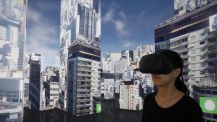
ZKM, Karlsruhe
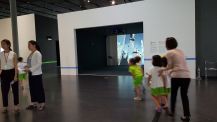
NJPAC, Seoul
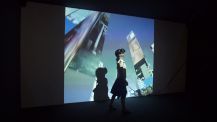
NJPAC, Seoul
SECURITY FIRST
Mixed Media InstallationThe installation SECURITY FIRST shows the wonderful world of surveillance technology. On a shelf are cameras in all possible forms: hidden spy cams, surveillance cams, night vision webcams, real-looking dummy cams. As a counter-design to the utopia of total security through camera surveillance, SECURITY FIRST shows the website insecam.org: The visitors of the website have access to the images of more …
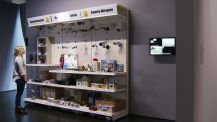
ZKM, Karlsruhe
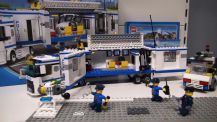
ZKM, Karlsruhe
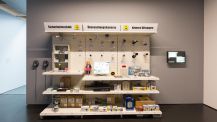
ZKM, Karlsruhe
Publication
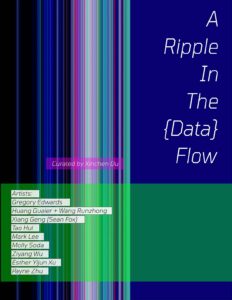
A Ripple In The {Data} Flow
MA Curatorial Practice, School of Visual Arts, NYCatalogue
2020
English
by Xinchen Du
www.macp.sva.edu/a-ripple-in-the-data-flow, Cataloge (PDF)
A Ripple in the {Data} Flow proposes a series of urgent questions too often ignored in this age of global connectivity: What kind of self-awareness can users maintain when they are actively, passively, or indirectly accessing data? If data is structured in a rational way, to what extent are we rational when using data? What are the perils of infatuation with the networked world and the many kinds of information, pleasure, convenience, and fantasy it offers? Curated amid the unprecedented human novel coronavirus (COVID-19) pandemic,
more …